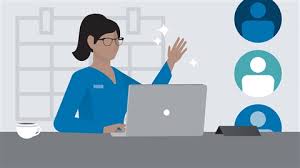Interview with Senior Wall Street Fund Manager (5)

Secondly, the speed of economic recovery after the epidemic, which largely depends on the strength of fiscal stimulus implementation, and at least many of the companies I've seen so far are still waiting for the PPP loan for small and medium-sized enterprises (SMEs) that were supposed to receive it by the end of March due to implementation constraints.
Third, will there be a second wave of more deadly epidemics this fall and winter (if the vaccine is not in production by then). So in my personal opinion, the near-term U.S. market may still be volatile between 2,600-2,800, to the above three factors are The answer comes after the breakthrough.
Talking about private life: investors need a little imagination
1, to do so many years of investment, the primary market secondary market have been to stay, what is the reason for your attraction to this line?
I enjoy investing for two main reasons. Dealing with people in the industry, learning new things and gaining new perspectives on the world. This is a very fascinating thing for me to do.
Secondly, I have a background in history, which emphasizes the distinction between "historical truth" and "narrative history". "truth", while connecting the dots through multi-textual comparisons, the fragmented "truth" Spell it out. Investing is similar in that in addition to understanding the company's fundamentals themselves, one also needs to understand the dominant narrative in the market context (narrative). ), or what is commonly referred to as a "fad"/"trend".
Investors need a bit of imagination to connect the dots between fundamentals and market narrative, to piece together the hidden patterns and find the gaps (mispricing) - the process of fumbling with the puzzle itself makes me enjoy it.
2、Compare the primary and secondary markets, what do you think is the difference between them?
Traditional PE buyouts emphasize two things: first, a deeper involvement in the management of the company (preferably with a board of directors who have the power to make decisions, and who are in the field, working with management to solve the company's problems); and second, a well-designed investment structure that maximizes returns or provides better protections, rather than relying on the company's own performance to generate excess returns.
Secondary market investments are generally not strongly involved in a company's operations (although I do sometimes activist). Investing, deeper involvement in the development of the company, as in the case of Avon, Prudential and LiveChat). , but there will be a strong emphasis on fully understanding the market's expectations (rather than just company fundamentals). Similar to betting on horses, not only do you need to focus on how fast the horse you're betting on will run (company quality), but you also need to be aware of the horse's The odds (market expectations) are soberly understood. To consistently win at the races, it's not about betting on the fastest horse, it's about betting on the horse with the biggest gulf between odds and speed! .
3、What do you like to do besides investing? What things in everyday life would inspire investing?
Personal interests include tennis, Frisbee shooting, accordion, and calligraphy; he also works professionally in think tanks (including Milken Institute Young Leaders Council, Skybridge Alternatives (SALT) Young Leaders Council, Adam Smith Society New York Leaders Council) to promote global corporate governance and business incubation.
In fact, many investment opportunities are discovered from life. For example, when I returned to China for a business trip in 2015, bike sharing was just starting to take off. Understand the situation and realize that this is a subject that could boom for at least a few years (even if I can't understand the profit model of bike sharing). I was familiar with the world's largest bicycle manufacturer, Jetion, but after talking to management I realized they were completely unaware of the impact of bike sharing on the The company was about to make a huge impact, but instead insisted that it was a "business trick that would last a few months at most," so I immediately... proceeded to short Jet Set. Then, unsurprisingly, Jet's mainland sales were severely squeezed by bike-sharing, and its share price went from over $300 in 2015. It's been down to $130 when the bike share bubble dissipated in 2018, giving me a gain of over 60%.



